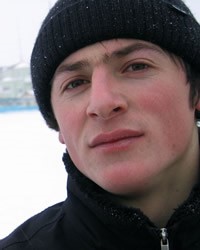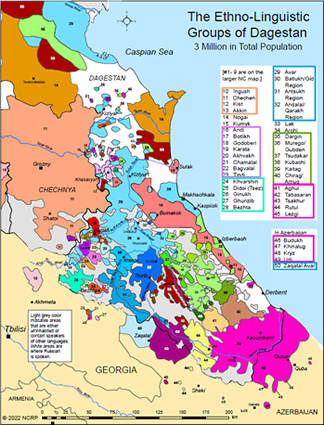The Dargin are a large ethnic group in Dagestan, in the Caucasus region of Russia. The history of the Dargin is one of struggle, being constantly conquered over centuries: first by the Huns, then by the Turks, the Mongols, the Persians, and in the 19th century, by the Russians. Dagestan is one of the strongest bastions of conservative Islam in the former Soviet Union. Since the 11th century, Islam has been the predominant religion of the Dargin. The influence of Islam has remained strong and is even increasing.
The Caucasus region is very unstable, and the people do not welcome Christian influence or presence. There is a need for much prayer to prepare the peoples of the Caucasus to desire to know the Prince of Peace, Jesus Christ.
There are only a few followers of Christ among the Dargin yet and all of their near neighbors are unreached. Pray for an interest in this area by God's people.
Pray for justice and peace in the Caucasus region: peace between ethnic groups and with the Russian government.
Scripture Prayers for the Dargin in Russia.
| Profile Source: Joshua Project |











